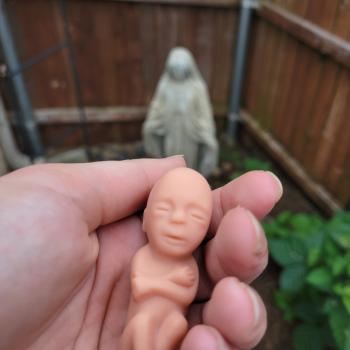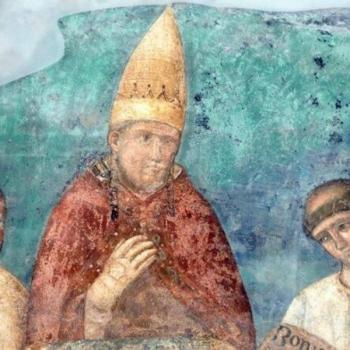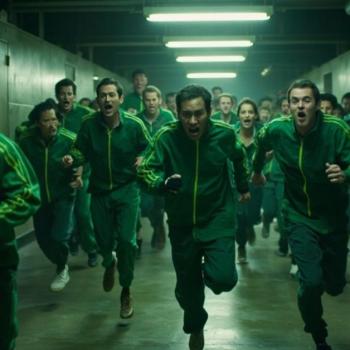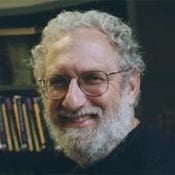Do the horrific images from Japan—not to mention reports that safety records at the nuclear plant have been faked for years—make you a little frightened when you drive past your absolutely, completely, technologically guaranteed neighborhood nuclear reactor? Perhaps you are certain such a thing could never happen in the U.S., where corporations and government inspection teams are known for their professionalism and moral responsibility. Then again, you might remember the BP oil spill, just last year, where a good deal of the problem was that BP had cut corners on some safety costs and the government inspection teams were both figuratively and literally in bed with BP staff.
Alongside nuclear leaks and oil spills there's the looming deficit, terrorism, and the rise in chronic childhood diseases (22 out of 70 million U.S. children have chronic illnesses tied to some degree to environmental pollution). If the current state of the world doesn't scare you, it's probably just that you haven't been paying attention. And you're not alone. An awful lot of us are scared as well.
So here's the thing: what do people do when they are scared? Well, some just hide in the corner. Sadly, however, many become aggressive, rigid, and very dogmatic.
Could there be a connection between our pervasive fear and the way we talk—or rather don't talk but scream, hurl insults, and express dismissive contempt at each other? After the shooting of U.S. Representative Giffords in Tucson many called for civility, but I suspect that civility is the opposite of an overwhelming and unacknowledged fear.
Let's look at this in a little more detail.
Often we run from anxiety by clinging to some kind of gut certainty. We tell ourselves we know that nuclear power is a great solution to global warming, or government overreach is the cause of the deficit, or invading Iraq will lessen terrorism. But this public certainty is often a cover for private confusion; and allowing that some other point of view might have any basis at all just makes us feel worse. Therefore those who disagree must be dreadfully naïve, woefully uninformed, or simply evil.
Yet somewhere we know that the problems we face are enormously complex. Energy policy, resisting terrorism, coping with environmental problems—all these involve interconnected families, communities, nations, and a world economy. Simple solutions don't exist and each proposal has dangers and limitations.
Maybe even worse, not only can't we as individuals really figure out what to do, but traditional sources of competence and moral authority have fallen under a variety of dark clouds. The Catholic Church reels from sexual abuse cover-ups; science gives us virtually unimaginable power but also creates ozone damaging CFCs, carcinogenic pesticides, and life-threatening nuclear weapons; democracy is better than tyranny, but seems dominated by voter sloth and special interests; the market produces wealth, but also poverty, wild financial speculation, and environmental disasters; excesses of rhetoric and corruption darken political parties on the left and the right; and much of spirituality is marred by narcissistic self-interest.
No wonder we get nasty and shrill, for too often the alternative would be to admit how terribly frightened we are, how much we don't know, and that there is no trusted authority that will make us safe.
Is there an alternative?
I'm not sure, and that itself might be a good place to start. I'm not sure how to meet our energy needs safely, bring democracy to Libya, deal with illegal immigration without hurting children, turn the U.S. into a vibrant rather than a passive democracy, or stop pollution. I've got a lot of ideas (that's what I do for a living, after all), but I'm not sure.
Yet admitting that a lot of our strong beliefs coexist with real uncertainty would help us listen to people with radically different ideas—even if only to acknowledge that they occasionally make a little sense. And we could recognize that all those people on "the other side" are also scared, also want a peaceful, safe world for their families, and are also trying to make sense of a very confusing world. Despite all our differences, in these ways we are the same.
Let us remember that in this age of global climate change, global economic connections, and global weapons we really are all in this together; and let's sacrifice the self-protective, fear-obscuring pleasures of self-righteousness and disdain for the ability to listen to, learn from, and live with each other. In return we'd get a sense of national, even human, community. Perhaps in the end we'll get to a conflict, a difference between us, that can't be resolved. But surely that's not where we have to start.
3/28/2011 4:00:00 AM





